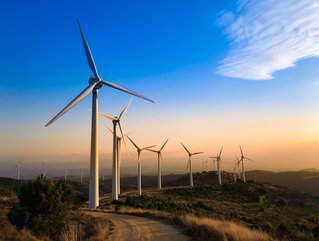US, China and UK lead renewable energy attractiveness

The US, mainland China and UK are the top three markets respectively based on attractiveness of renewable energy investment, according to the 59th EY Renewable Energy Country Attractiveness Index (RECAI).
The UK has jumped two places while fourth place Germany moved up three places and Spain (9th) and Netherlands (10th) rose one place each.
Denmark is another notable riser, up four places - with a new target of producing up to 6GW of hydrogen annually by 2030 - and Poland, having launched tenders for three new offshore wind concessions, is up three places.
Finland and Austria both shot up seven places, the former approving the introduction of an auction model to lease out public waters for the development of offshore wind, and the latter's government has committed to provide €250mn ($264mn) to support the development of renewables.
Greece and Germany both rose three places. Greece is seeking to double its installed renewables capacity to around 19GW by 2030 and Germany has brought forward its 100% green power target by 15 years to 2035.
Energy security rises to top of government priorities
Energy security has risen to the top of government priority lists in the wake of geopolitical instability and spiralling gas prices.
As a result, governments around the world are looking to accelerate and broaden the scope of their renewables programs to help reduce reliance on imported energy.
Arnaud de Giovanni, EY Global Renewables Leader, said many renewables' technologies that were considered new and high-risk in the recent past are fast showing the potential to become mainstream and are therefore attracting investment interest.
"With energy prices expected to remain volatile for the foreseeable future, energy leaders have an unprecedented window of opportunity to leverage technological innovation and explore investment in enabling sustainable, renewable growth," he said.
The case for floating technologies in energy renewables
The report also explores the opportunity presented by floating technologies. Offshore wind continues to have great potential for investment, with the cost of electricity generated expected to drop to $70/MWh or lower by 2030.
On top of the 11 floating offshore wind projects already in operation, over a hundred more – with a combined capacity in excess of 26,300MW – are under construction, have achieved financial close or regulatory approval, or are in the early planning stages.
Floating solar power is also attracting more attention as the cost of photovoltaic (PV) panels has plummeted, and global capacity has jumped more than 100-fold in the five years to 2021.
So far, most 'floatovoltaic' projects are on man-made, freshwater bodies, where the environment is relatively controlled, but there are plans to move further offshore to exploit the vastly larger resources of open sea.
Ben Warren, EY Global Power & Utilities Corporate Finance Leader and RECAI Chief Editor, said as governments seek to diverge away from natural gas, added impetus is given to renewable energy technologies that can help to diversify the renewable energy mix.
"This sets the tone for a significant domino-effect in the investment landscape, with a re-prioritisation of renewable energy build out creating an attractive climate for investment, with growing amounts of capital to deploy," he said.
"RECAI explores the growth and investment potential of both conventional and innovative alternatives, including floating technologies, green hydrogen and green gases."






